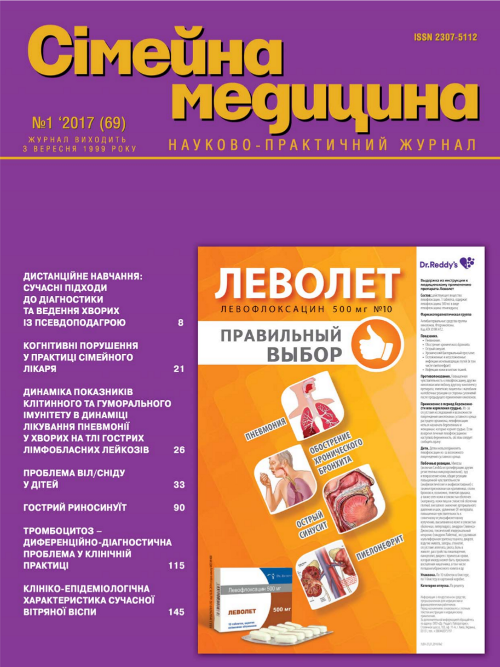Distance education for professional development of physicians in medical ethics and psychology of patients and people with disabilities
##plugins.themes.bootstrap3.article.main##
Abstract
##plugins.themes.bootstrap3.article.details##

This work is licensed under a Creative Commons Attribution 4.0 International License.
Authors retain the copyright and grant the journal the first publication of original scientific articles under the Creative Commons Attribution 4.0 International License, which allows others to distribute work with acknowledgment of authorship and first publication in this journal.
References
Аміров Н.Х., Альбіцький В.Ю., Нежметдинова Ф.Т. Від медичної етики до медичної біоетики // Проблеми соціальної гігієни, охорони здоров’я та історії медицини. – 1999. – № 2. – С. 40–42.
Закон України про вищу освіту/ Відомості Верховної Ради, 2014. – № 37–38.
Лісіцин Ю.П. Медична етика, деонтологія і біоетика // Проблеми соціальної гігієни й історія медицини. – 1998. – № 2. – С. 7–13.
М’ясніков В.Г. Безперервний професійний розвиток – наступний крок реформування медичної освіти в Україні // Науково#методична конференція з міжнародною участю «Проблеми безперервного професійного розвитку лікарів і провізорів»: Зб. праць. – К., 2007. – С. 34–36.
Местергази Г.М. Врач и больной или по-новому о старом: учебное пособие / Г.М. Местергази. – 2-е изд. – М.: БИНОМ. Лаборатория знаний, 2009. – 112 с.
Михаловска-Карлова Е.П. Биоэтический практикум: учебное пособие / Е.П. Михаловска#Карлова, Л.Е. Горелова; ред. Д.А. Балалыкин. – М.: Литтерра, 2012. – С. 614.
Орлова Е.В. Культура профессионального общения врача: коммуникативно-компетентный подход / Е.В. Орлова. – М.: Форум, 2012. – 288 с.
Перцева Т.А., Снисар В.И. Проблема беспрерывного медицинского образования в Украине // Науково-методична конференція з міжнародною участю «Проблеми безперервного професійного розвитку лікарів і провізорів»: Зб. праць. – К., 2007. – С. 30–31.
Про внесення змін до Положення про порядок проведення атестації лікарів: Наказ МОЗ України від 02.10.2015 р., зареєстрований в Міністерстві юстиції України 03.02.2016 р. за № 176/28306.
Amadco A. Distance education without high costs // Learning fnd leading with technology. – 1995. – Vol. 22, № 8.





